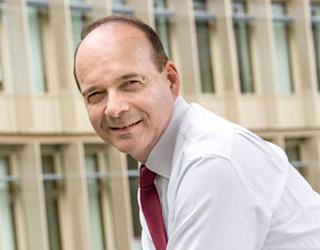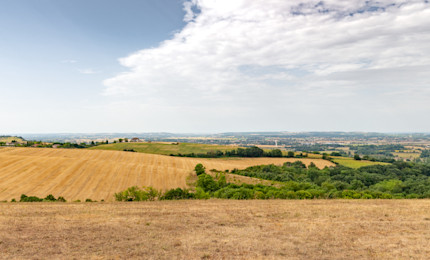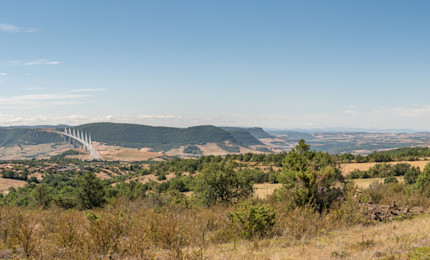Urgence gaz 0 800 028 800

Energy frugality: Teréga does its bit
While France faces the winter without imported gas from Russia, the national energy frugality plan announced by the government in early October should prevent the economy being impacted by electricity or gas outages. What is Teréga doing to help face this challenge? And how does it see frugality playing out over the longer term, as one of the pillars of a more virtuous energy ecosystem? Dominique Mockly, Chairman and CEO of Teréga, shares his view of these challenges.
Could energy frugality be enough to deal with the tensions on the European energy market?
Dominique Mockly: Energy frugality is a necessary response, because through the crisis with Russia we’ve lost 17% of gas capacity in France and 40% in Europe. We cannot substitute all of that in the short term with other energy sources. Frugality is therefore an essential tool in freeing up some wriggle room and allowing our energy system to continue operating in this tight situation. The energy savings generated by this approach will give us flexibility, useful in dealing, for example, with the failure of a power station or the unavailability of weather-dependent renewable sources.
But while it’s necessary, frugality is still not enough on its own. It must be supported by speeding up the energy transition: making better use of available resources, and giving wider consideration to the energy (and thus ecological) footprint of what we do. We need to invent solutions and deploy new technologies to optimise our consumption, just as Teréga has done, for example, with its IMPULSE 2025 smart multi-energy grid project.
But for now, what role will Teréga play in the event of difficulties in securing gas supplies?
DM: As a grid operator, our priority is to secure supplies for public distribution grids and household consumption. To do that, we’re making the entirety of our transport and storage capacities fully available. If the situation becomes really tight, we can activate the three levers provided by the State: interruptibility, rationing and, as a last resort, load-shedding. These mechanisms apply to our industrial customers, and of course we will work alongside them to get through it. We’ve foreseen the problems they may face, such as the time needed to secure their systems prior to load-shedding.
So that we can anticipate tensions rather than suffer load-shedding, the Ecogaz platform, supported by NaTran, Teréga and Ademe, gives them access to a weekly indicator on the national gas grid situation, so that they can adapt their consumption accordingly to relieve pressure on the network. As far as we ourselves are concerned, we’re supporting them right now in implementing a lasting frugality approach, giving them the means to manage their consumption data more effectively, to enable real-time management. We also offer them the opportunity to subscribe to the voluntary interruptibility service, and to sign the Ecogaz charter under which they commit to implementing a practical energy frugality plan.
Can these energy frugality levers, being deployed against the backdrop of this crisis, become part of a lasting process?
DM: That’s what I’m hoping! However, when a crisis comes to an end, old habits soon return. Let’s hope, this time, that the good habits hold on, and that today’s rationing tools will become tomorrow’s levers for optimisation. I hope energy suppliers will retain the principles, backing them up with incentives and bonuses to encourage frugality, rather than penalties.
I also think that reducing dependence on energy sources from far away will be one of the important features of our future. We may then no longer be talking about frugality, but about bolstering energy sovereignty.
What opportunities does this trend open up for renewable gases?
DM: Renewable gases are the answer to two needs: reducing our carbon footprint and securing local energy supplies. They’re also an integral part of current European government targets. They also have the advantage of being based on continuously available sources, whose transformation we can control according to our needs; biomethane and biogas, from waste processing, are independent of the weather.
The current situation will therefore help accelerate all these renewable and local energy sources. Teréga contributes to that by developing and enhancing its infrastructures across the territories: providing both transport and storage, they allow effective and fully tailored management of these energies that are being produced continuously, but which consumers often use discontinuously.
How will the current upsets in the energy market affect our energy transition ambitions?
DM: This crisis has had the positive effect of leading us to become fully aware of our dependence on fossil fuels. At the time when the whole world was talking about electrification, we had perhaps lost sight of how much we still needed gas and hydrocarbons. Today, the RepowerEU plan clearly links the resilience of our energy systems with decarbonisation and the capacity to free ourselves from these fossil resources.
One thing that sets France apart is the availability of nuclear power, which partly meets these needs. But the future will be built around a diversified mix, with a massive contribution from a new energy carrier which is green, decarbonised, and locally produced: renewable hydrogen. The current situation can only speed up that shift. Transition to this more virtuous ecosystem will certainly require a lot of investment, but the crisis we’re going through is actually helping make such efforts more acceptable by clearly underlining how necessary they are.
Crises such as these always leave you stronger. And since it has clearly shown us the route we need to follow towards greater energy autonomy and lower greenhouse gas emissions, I’m quite optimistic!
Biography of the expert
Dominique Mockly
Specialising in the defence, aerospace and energy areas, he began his career with the Direction des Constructions Navales (French Naval Shipbuilding). Then, he joined the Délégation Générale pour l’Armement (French Defence Procurement Agency) to assist the Head of the DGA with the transformation of this administration. At the end of 1998, he was entrusted with SAGEM’s avionics and optronics activities before joining the AREVA Group in May 2003, where he became head of the Technicatome subsidiary. In January 2009, he was appointed Executive Vice-President in charge of International Development for the AREVA Group. In January 2011, he was appointed Executive Vice-President in Charge of the “Back-end” Business Group for the AREVA Group.
In 2016, he joined Teréga, France’s second-largest operator of natural gas transmission and storage infrastructures, as Chief Executive Officer. In November 2017, Dominique Mockly was appointed Chairman of the Board of Directors of Teréga SA.
He is also a lecturer at ESCP Europe and MEDEF representative on the Executive Committee of Business at OECD (BIAC), representing businesses at the OECD, since 2014.
As an expert in business transformation, Dominique Mockly published L’entreprise cerveau petite apologie de la curiosité in November 2017, Le pari du gaz in May 2018 with Editions Débat Publics, and Dirigeants, Acteurs de la Transformation Numérique in September 2018, co-written with Louis Naugès. His latest book La mondialisation décompressée was published in March 2021 by Editions Débats Publics.









